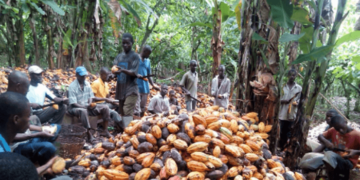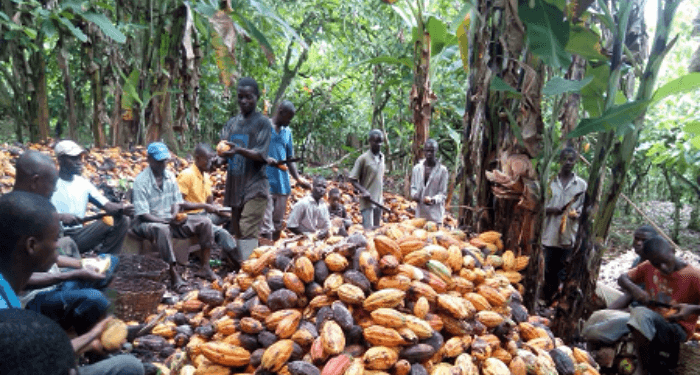The Ghana Cooperative Cocoa Farmers Association, led by National Financial Secretary Oforiwah Amanfo Alice, is calling for a increase in cocoa prices.
Speaking on ABC News Ghana, Alice stated “the current price of cocoa is unacceptable. Farmers in Ghana are expecting more because of the increase of the … on the world market. Recently my farmers were demanding that it should be about GHS6000, or even if less should be GHS5000.”
The call comes as Ghana’s cocoa sector faces challenges despite government initiatives like the Living Income Differential (LID) policy, which provides a $400 per tonne premium to farmers.
The current producer price, set at GH₵48,000 per tonne for the 2024/2025 season, represents a significant increase from previous years, yet farmers insist it is insufficient to combat smuggling and sustain livelihoods.
During his final State of the Nation Address on January 3, 2025, President Nana Addo Dankwa Akufo-Addo lauded his administration’s efforts in the agricultural sector, emphasizing increased cocoa productivity and policies like the LID. However, farmers argue that the producer price of GH₵3,000 per 64kg bag falls short of addressing their economic realities.
Oforiwah Amanfo Alice remarked: “Our farmers need better compensation for their hard work. The GH₵6,000 per bag promise made by the incoming Mahama government is a step in the right direction, and we hope it becomes a reality.”
As Ghana transitions to a new administration under President-Elect John Dramani Mahama, cocoa farmers are holding the National Democratic Congress (NDC) to its campaign promise to increase the producer price to GH₵6,000. Outgoing President Akufo-Addo referenced the pledge during his address, noting: “Our farmers will be very happy when this promise is realized.”
The cocoa sector, once a crown jewel of Ghana’s agricultural economy, has seen mixed fortunes, with productivity improvements overshadowed by calls for higher farmer compensation. Farmers are optimistic but remain cautious as they await action on promises that could redefine the industry’s future.

































